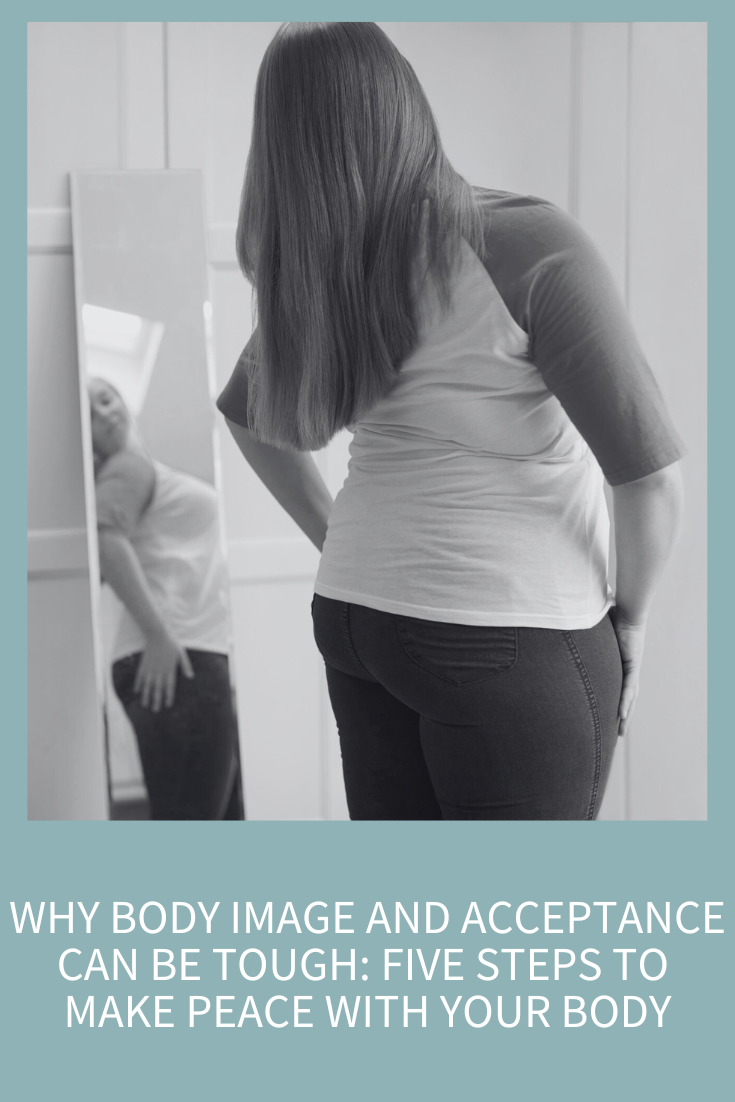
10-minute read
Prefer to listen to the podcast? Click here!
Is your relationship worth saving? Have you been wrestling over The Clash’s epic line, “Should I stay or should I go?” Yes, this indecision is bugging you! The waffling back and forth, the feeling of uncertainty is the worst. You don’t want to regret you want to be 100% confident that breaking up (or staying) is the right decision. In my over 30 years of working with couples, I’ve identified a five-step process you should be thinking about first if you’re wondering whether you should stay or go.
First things first: if you’re thinking about breaking up or divorce, it also means you’re thinking about staying together. The fact that you’re asking this question means you want to stay in the relationship. Some part of you wants to save it or you’d just be done and already out that door. Now, is that a healthy part of yourself that wants to save it? That I can’t answer, but I’ll get to what to do about that in Step 5.
For now, I want you to know that these five steps will help you create a new way of thinking and being in your relationship so you can move forward with confident, clear decisions and no regrets, no matter which way you ultimately choose to go.
Step 1: You have to make a full commitment
People come to me and say, “We’re going to come to couples therapy and see if this thing works and then we’re going to decide if we’re going to stay together.” But you can’t do it that way. You have to be all in with “We’re going to stay together. I’m putting all my eggs in this basket. I’m all in.” The waffling and staying on the fence simply drags out therapy and your problems. You’ll end up blaming your partner, therapy or something else for why it didn’t work, but it’s really because you didn’t make a full commitment and your partner knows so they’re not making one either!
I’m going to repeat something I’ve said quite a few times and you REALLY need to hear me on this:
Your Partner Doesn’t Hear What You Say, They Hear What You Mean.
Your conscious brain processes information at a rate of 50 bits per second while your subconscious brain processes information at a rate of 11 million bits per second. This means that your partner doesn’t hear what you say, they hear what you mean. You can say all the right things but if your unconscious believes something else, that’s what your partner is listening to.
Have you ever been talking to someone at work and they were saying all the right things, but you got the sense that they were full of BS? Or maybe you had a “hunch” that something was going on with your partner even they they were acting like everything was fine? That’s you picking up on those 11 million bits versus the 50.
And your partner does it with you too! They’re very tuned in to what you’re “really saying” every time you interact. So, maybe you’ve been working on your marriage. You’ve read a book, taken a workshop or you went to couples counseling and now you’re trying out some new tool or strategy to try to change your relationship.
Consciously you’re thinking, “Yes, this is really going to help!” But, subconsciously, there’s doubt and maybe some resentment. Your subconscious dialogue goes something like this: “We’ve had these problems a long time, it’s going to take forever to make changes and I don’t know if I have it in me!” Or “We’re never going to make changes because my partner refuses to do anything differently!” Or, my favorite, “We make changes, but we always end up slipping back to old behaviors. Nothing ever works!”
Even though this is below the surface, you start using the new tip or technique you learned but your partner picks up on your doubt, resentment, anxiety and hopelessness, which makes them not want to change because it feels the same. They’re picking up on your incongruity. Your partner is subconsciously thinking, “Sure, you’re doing some new things but how long is this going to last? I’m just going to wait it out.”
Then you don’t see the changes you want in your partner (despite all these great changes you’re making) and you think, “See? Nothing works!” And you revert to your same old patterns which leaves your partner thinking that they were right not to waste time trying to do anything differently. This is the cycle that keeps us relationship counselors in business.
Knowing this, you’ve got to make a full commitment. If you’re going to really try to make your relationship work, you’ve got to be fully, 100%, every ounce of your being, committed. To help figure out if you want to make that commitment, download my free Figuring Out Your Commitment worksheet below.
Step 2: Re-program Your RAS
If you’re thinking about breaking up, you’ve likely been spending quite a bit of time focusing on all the things you think are wrong with your partner and your relationship for quite some time. When you start thinking like this, you start to see the negative everywhere.
Essentially, you’ll start proving yourself right.
This happens because of a little-known, but very important, part of your brain circuitry, called your reticular activating system or RAS for short. The RAS is a network of neurons located in the brain stem and it’s where most of your senses come in.
Your RAS is a filter between your conscious brain and your subconscious. Specifically, it takes instructions from your conscious mind and passes them on to your subconscious. You’re constantly giving your RAS instructions by what you’re thinking about – the problem is that you don’t even realize it.
So, if you’re thinking, “My partner is always judging and criticizing me,” the RAS hears this as the instruction or order: “Look for my partner criticizing me.”
Sure enough, your partner is “always” criticizing; you hear it constantly. The RAS is also the reason you’ll suddenly notice a lot of pregnant women when you’re pregnant or the amount of Toyota Highlanders on the road after you buy one.
So, if you’re thinking:
- “If she’d only stop nagging me every day, I could breathe and get to everything on my list,” or
- “If he’d only stop drinking so much, we’d be great,” or
- “The only problem in our relationship is his anger.”
You’re essentially telling that RAS to look for nagging, drinking and anger and it will find it…. OFTEN!
And here’s the really scary part (in case I haven’t blown your mind enough): your RAS will also filter out anything that doesn’t match what you’re thinking! So, when your partner is loving, appreciative, thoughtful and kind you won’t see it! This is why you get into those “they said/you said” arguments. “I don’t remember you doing that!” “You didn’t say that!” It’s because your RAS filtered those nice things out and you were left proving yourself “right” over and over.
The good news is that you can deliberately program the RAS by thoughtfully choosing the exact messages you send.
If you really want to find peace, happiness and connection in your relationship, you need to shift what you’re focusing on and be conscious of the orders you’re giving to your RAS. You can do this by writing down one thing you appreciate about your partner every day or do one random act of kindness for your partner every day for the next week.
Here’s another bonus of doing this: thinking these thoughts and doing these nice things will actually result in your partner changing because, when you start acting nice to your partner, they start acting nice to you! As you start to get those 50 bits in line with your 11 million bits, your partner will feel the change and begin to reflect it back – often without even knowing it!
Step 3: The one in the most pain needs to change first
I say this a lot and I know you don’t like to hear it, but I’m here to give you the honest love, not the BS. If you’re waiting for your partner to change, so you’ll change, it’s not going to work. If you’re thinking, “I’m the only one who puts in any effort – they need to put in the effort now” – you’re keeping score and this isn’t going to work.
What’s happening is that your fear is running the show when you’re thinking like this. For example, you’d NEVER say this to a little kid! You give love endlessly to your children without feeling hurt or rejected when they don’t return it but, for some reason, we don’t feel that way with our partners!
You’re afraid of being rejected, abandoned, embarrassed and taken advantage of! Insane! How are you building a life with someone – having kids, a mortgage, traveling – when you don’t even trust them not to take advantage of you?
I know what you’re thinking, “But Abby, what if it doesn’t end up working out?” Well, it might not – there are no guarantees. And yes, it’s going to hurt like hell if it doesn’t work out. But you’re hurting now! Better to be on the other side with no regrets, no “what if’s” no “If only I’d tried X,” “I should have done Y” – because that’s going to give you a LIFETIME of hurt instead of a short-term, “I tried and gave my full heart and now it’s time to move on.” Hurt is part of all relationships! It’s unavoidable. Our partners hurt us even when they don’t mean to. So why are you afraid of this hurt when the payoff can be SO big!?
Step 4: Make room to really work on the relationship
You’re going to need to make both physical and emotional room in your life to work on your relationship and make it a priority. I’m talking about making the physical time (not sleeping until the last second in the morning and then having no time to connect before your partner leaves for work; not making time to do things together). And I’m also talking about freeing up some emotional bandwidth! This means that some things are going to have to come off your plate, so you have the mental capacity to take on the big task of turning your relationship around. Your plate is already very full so where is all this energy going to come from if you don’t change other things? How are you going to act, not react when you’re completely full with everything else? How are you going to keep the urgency going and make your relationship an ongoing priority?
Step 5: Work on Yourself Individually and Stay Curious About Your Partner
Doing the work on yourself is a biggie. You’ve got to identify your triggers. What’s your attachment style and how does that play in to how you’re being in the relationship? What are your expectations? How has your parents’ relationship affected how you are with your partner? What’s keeping you in this relationship? What’s stopping you from co-creating the relationship you really want? If you don’t think you can get the relationship you really need and want, why are you staying? These are all important things to uncover so you can be mindful and self-aware in this process.
And, at the same time, stay curious and open with your partner. Don’t think you can read their mind and know what they’re thinking or going to do (remember, that RAS will show you that you’re “right,” but it’s skewed. You’re really not right – it’s just all you’ve trained yourself to see).
If needed, get to a therapist and work on your own shit! You’ve got to get your side of the street clean first and foremost. This will help you stay open, curious and loving with your partner.
RESOURCES
The Real Reason Relationships Fail
How to Focus on What’s Right Instead of What’s Wrong in Your Relationship
How Attached Are You in Your Relationship?
How to Make Mindfulness a Consistent Habit








